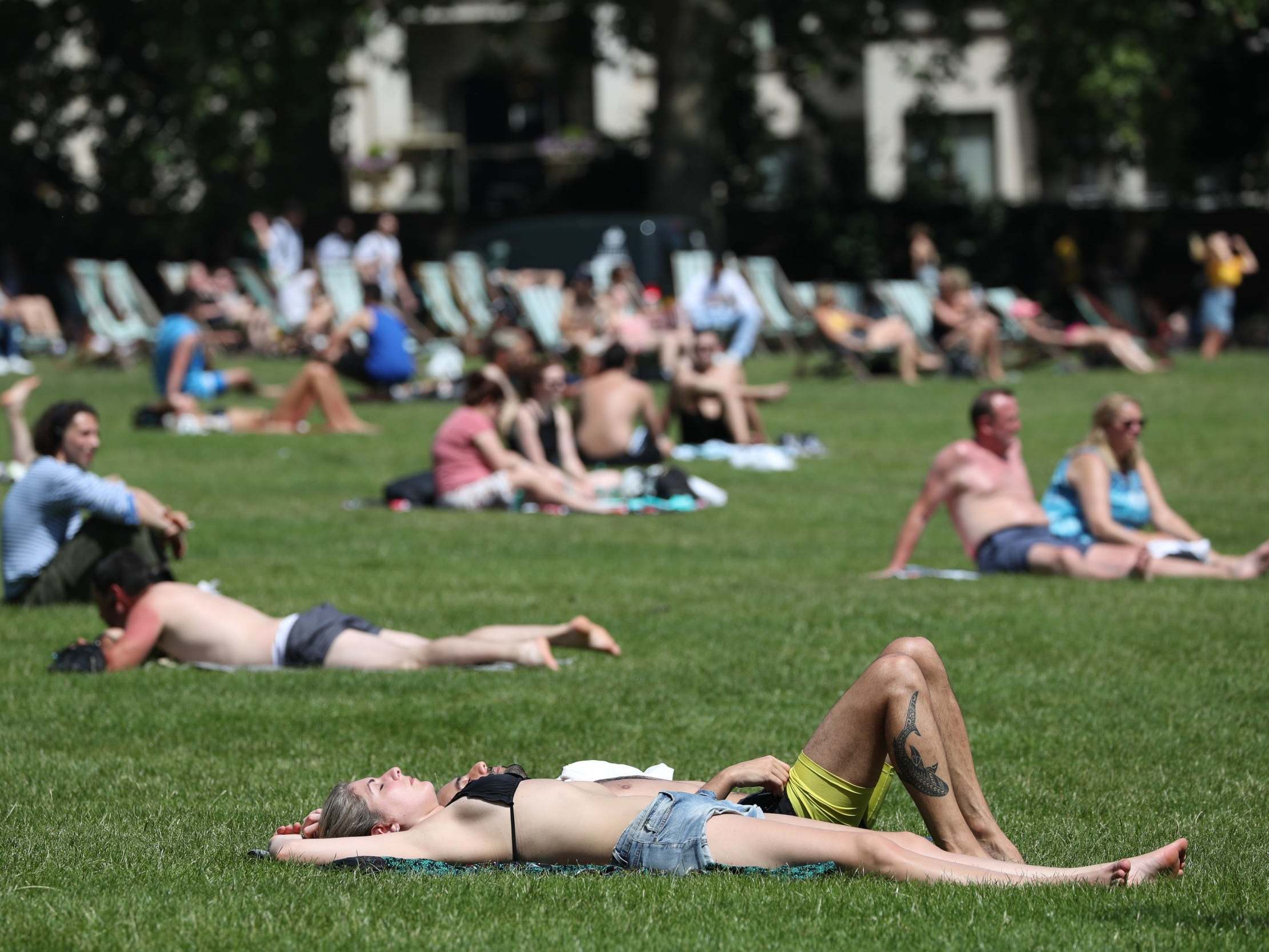Why is there a UK heatwave and how does it relate to climate change?
Analysis: All over the world records are being rewritten and death tolls are rising

Here we go again. Another week of sweltering summer heat.
Britain is known for its temperate – if not always agreeable – climate. However, we may soon look back on our warm winters and mild summers with nostalgia as the country looks towards a future bombarded with bouts of blistering heat.
In London temperatures are set to reach 38C and in a string of other European countries temperatures could top 40C. All over the world records are being rewritten and death tolls are rising.
Since the early 2000s climate scientists have been looking to understand how greenhouse gas emissions could increase extreme weather events such as heatwaves and storms. This complicated relationship is still being teased apart but they are in agreement about one thing: global weather systems are being pushed into unknown territory.
This is the coalface of climate change and our weather systems are set to change in divergent and unpredictable ways.
The UK has a greater chance of seeing milder, wetter winters and hotter, drier summers. Already UK heatwaves in June are 4C hotter than they were a century ago and by 2100 heatwaves lasting more than 50 days with temperatures exceeding 40C could become normal.
The frequency and intensity of heavy rainfall will probably increase because warmer air holds more water meaning precipitation is heavier and more intense. According to the UK Met Office, flash floods could be five times more common by the end of this century.
According to Carbon Brief, 68 per cent of extreme weather events have been made more likely or more severe due to human-induced climate change. The deadly European heatwave in June was made up to 100 times more likely because of climate change.
Dr Peter Inness, a senior research fellow at the University of Reading, said: “The fact that so many recent years have had very high summer temperatures both globally and across Europe is very much in line with what we expect from man-made global warming.”
Why is this heatwave happening? Every tonne of carbon dioxide released into the atmosphere traps heat and contributes to the greenhouse effect. A warmer climate affects the weather in both thermodynamic and dynamic ways.
The thermodynamic effect is straightforward – increased average temperatures means spells of hot weather will be more extreme.
The dynamic effect is more complex. Changes in how the atmosphere is composed affects the way the weather systems develop and move around.
The current heatwave in the UK has been caused by changes to the jet stream which is a fast-moving current of air high in the atmosphere. Over Europe it divides cold air in the north and warm air in the south.
However, this stream of air has been meandering. Scientists are not sure why this is happening but some say it’s been diverted by heatwaves in the US.
Dr Kate Sambrook, a research assistant a the School of Earth and Environment, University of Leeds, said: “Heatwave conditions in the midwest and the east coast have strengthened the jet stream and the resulting thunderstorms occurring on the continent have helped the jet stream to meander and move to the north of the UK.
“As a result of this shift, hot air has been drawn up from Europe causing the high temperatures we are experiencing this week.”
As well as bringing up hot air from the continent, this high-pressure system is blocking cooler weather fronts and low pressure systems coming from the North Atlantic. Towards the end of this week, the high pressure over Europe will move east which means some cooler fronts might move over the UK.
Professor Hannah Cloke, a natural hazards researcher at the University of Reading said: “Britain’s heatwave will mercifully be relatively short-lived, with some respite over the weekend. But these uncomfortably hot few days and nights should serve as a reminder of what we, as a country, need to do to prepare ourselves for more heatwaves in the future.”
Currently records are being broken by large margins – in Europe June 2019 was the warmest yet, a whole degree warmer than the previous record set in 2003. During that summer, 70,000 people were killed across the continent due to the effects of extreme heat.
Normally, such records are broken by a fraction of a degree.
Dr Inness said: “It’s still too early to say whether July 2019 will be the warmest July on record globally as there’s still over a week to go. However, June 2019 was the warmest June since global records began in 1880. In fact, nine of the ten warmest Junes in the global record have happened since 2000.”
Last summer was the joint hottest on record with temperatures measuring around 35C, which is similar to what is being felt this week. The probability of such temperatures has increased from less than 10 per cent in the Eighties and Nineties to around 10 to 25 per cent today.
Dr Declan Finney, a research fellow from the University of Leeds, said: “With further climate change there could be a 50 per cent chance of having hot summer in future. That’s similar to saying that a normal summer in future will be as hot as our hottest summers to date.”
Dangerous levels of heat are being recorded all over the world. India and Pakistan has been suffering from one of the longest heatwaves in recent history.
In terms of extreme weather, what we’re currently seeing is likely to be the tip of the iceberg and scientists are urging global leaders to urgently take steps to follow up on commitments to tackle climate change and reduce emissions.
Join our commenting forum
Join thought-provoking conversations, follow other Independent readers and see their replies
0Comments